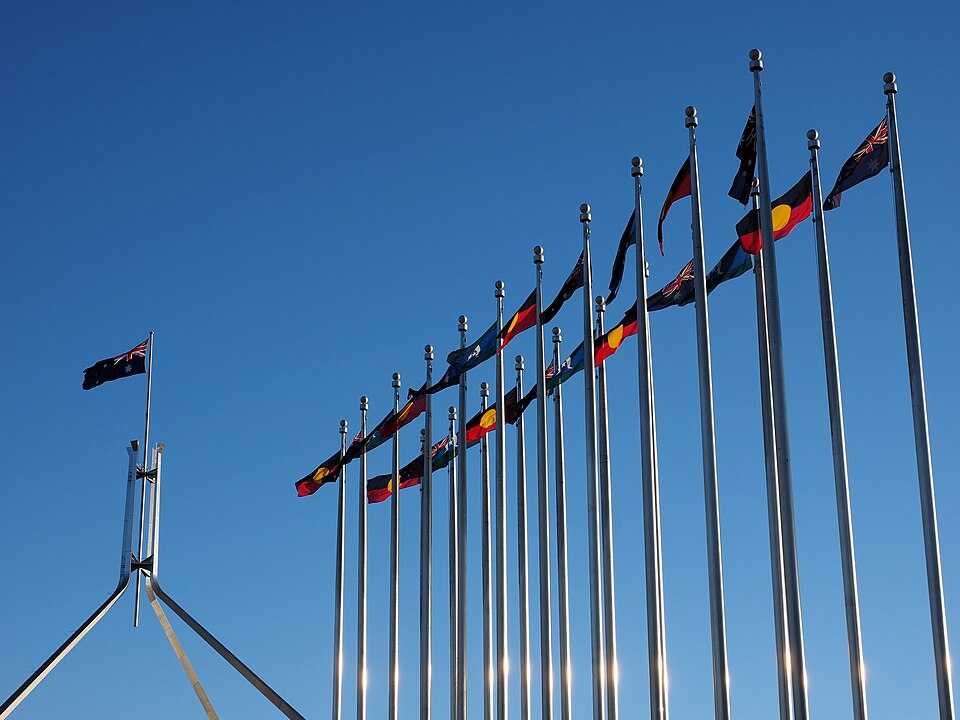Indonesia’s newly amended Military Law has signalled the intention of the country’s leader to expand control over the civil services. Already, a series of diplomatic blunders by President Prabowo reveals how the sidelining of civilian government could also lead to potentially disastrous foreign policy outcomes for the country.
Indonesian President Prabowo Subianto has shown a problematic favour for personal power since taking office, particularly in sidelining government procedures in leading Indonesia’s foreign policy. The Indonesian Parliament’s decision on 20 March to amend the country’s controversial military law, which allows more active military personnel to assume government posts, has become part of the ongoing trend to sideline civilian power in policymaking. Such trends contribute to a further consolidation of elite power control over Indonesia’s policy.
What is unfolding is not merely a shift in leadership style—it is the personal takeover of foreign policymaking. Although the recent move signals increasing commitment from top leadership into foreign policy, it unfortunately entails the sidelining of established bureaucratic processes that make the policy less accountable for ordinary Indonesians. Without meaningful check and balance mechanisms, there is less guardrails that can prevent leadership at the top from creating foreign policy that does not reflect the interest of regular Indonesians.
Personal over Institution
Prabowo’s style of diplomacy marks a complete departure from the former leadership of Joko “Jokowi” Widodo. While Jokowi was known to be inward-looking, preferring to delegate foreign policy matters to senior ministers, Prabowo brands himself as a global statesman that actively participates in world affairs.
Even before being officially inaugurated as president, Prabowo had embarked on a series of state visits. His presence at high-profile summits, including APEC in Peru, D-8 (Development 8) in Egypt, and the G20 in Brazil, was also duly noted by many. In June recently, Prabowo took the controversial move to skip the G7 meeting in Canada for attending the St. Petersburg International Economic Forum to meet with Russian President Vladimir Putin, who has previously endorsed Indonesia’s bold step to join the BRICS as a full member early this year.
For some, Prabowo’s foreign policy activism, and his commitment to foreign policy leadership, has improved comparably from the previous administration. Last year’s Indikator survey showed that the lack of an active role in international affairs had become the top source of dissatisfaction for many on Indonesia’s foreign policy. Under the Jokowi administration, where foreign policy leadership was often diffuse, bureaucratic fragmentation was often observed, particularly in responding to international conflict.
In January 2020, for instance, the region observed conflicting responses to China’s incursion into Indonesia’s North Natuna Sea. While Foreign Minister Retno Marsudi asserted that China’s action violated the United Nations Convention on the Law of the Sea, then-Defence Minister Prabowo and then-Coordinating Minister for Maritime Affairs Luhut Pandjaitan, urged people to remain friendly toward China.
Under strongly functioning institutions, government bodies serve as the filter that translates a political leader’s ambition into policy. What is then implemented is more actionable and less disruptive for the public. Experts and bureaucrats attempt to ensure a policy is calculated meticulously before implementation.
Despite the importance of the civil service, Prabowo has shown little respect for bureaucratic processes and consultation with other officials. He has often signalled his hatred for bureaucrats, who he has called “little kings,” and who do little but siphon government money.
As a show of his distaste for the bureaucracy, and of his interest in foreign affairs, Prabowo has appointed his former personal secretary, Sugiono, as foreign minister. While putting a political party member in the foreign minister post is a common practice in Australia and other established democracies, it broke a decades-long tradition in Indonesia where foreign policy is carried out by a career diplomat. The foreign ministry became a crucial body for the country’s civil reforms, “Reformasi,” at the end of the military-dominated regime in 1998, with a key feature being the strengthening and the professionalisation of the civil service.
Prabowo’s decision to choose his former personal secretary as foreign minister signals his ambition to carry out Indonesia’s foreign policy hands-on. As the same move also took place in other policy sectors—such as the appointment of political allies for the country’ cabinet secretary, investment coordination board, minister of mineral and energy, minister of state-owned enterprises, and other strategic posts—putting political appointees in a crucial government post also signifies Prabowo’s intention to expand control over government affairs.
The handpicked loyalists such as the current foreign minister are less likely to criticise the leader’s agenda, making policy less accountable. The impact of exerting personal control and foregoing bureaucratic processes on foreign policy could led to diplomatic missteps that otherwise could have been avoided. As an example, in last year’s Joint Statement between Indonesia and China in Beijing, Indonesia made a territorial concession by implicitly recognising China’s illegitimate nine-dash line claim in the North Natuna Sea.
An insider report from Tempo, a reputable investigative media house in Indonesia, observed that the Ministry of Foreign Affairs had previously scrapped a draft readout of the statement that conceded China’s claim. Prabowo at the time ignored the draft, possibly to solicit more economic concessions from China. Prabowo’s unilateral move runs against the established stance held by the Ministry of Foreign Affairs that has long prevented China from legitimising its illegal territorial claims.
Democratic erosion breeds conflict
The personal control of foreign policy is only a small part of the bigger story happening in a country where the erosion of democratic institutions has allowed elites to consolidate control over various policy sectors.
Analysis from the Economist Intelligence Unit’s democracy index illustrates that democracy in Indonesia has slid from 7.03 in 2015 to 6.44 in 2024. In February this year, the Indonesian parliament—where Prabowo’s ruling coalition holds near-total control—was granted the right to assess and dismiss the head of the independent government agencies. The agencies include Indonesia’s Corruption Eradication Commission and the Supreme Court that have long kept the Indonesian leadership in check from taking unlawful actions.
For a long time, Prabowo has repeatedly expressed his distaste for democratic institutions. The president has reportedly stated that he is “allergic to protest.” Without meaningful opposition and acts of restraint from the elites in power, this trend is likely to continue.
The so-called “democratic peace theory,” despite its flaws, offers some conventional wisdom. In a well-functioning democracy, the ruling political leaders are restrained from exerting personal control due to a constant scrutiny from the public, independent bodies, and government mechanisms that require leaders to regularly hold themselves accountable. In theory, the check and balances of institutions prevent a leader from taking risky foreign policy decisions that could harm people at home and abroad.
A study by Jessica Weeks shows that regimes with personalist leaders under autocratic rule are historically more likely to wage conflict abroad. Indonesia’s past teaches us how unchecked power can result in foreign policy disasters. During the Guided Democracy era (1959-1966), the move by Indonesia’s first president Sukarno to abolish the country’s parliament effectively removed opposition from his government that could have restrained him from taking controversial foreign policy actions. This includes withdrawing Indonesia’s participation from the United Nations in 1965 and waging war, “Konfrontasi,” against the newly independent Malaysia in 1963-1966, which also dragged Australian troops into the conflict.
With virtually no opposition party in the parliament, and key government posts being filled by loyalists, Indonesia may be returning to an era of personal rule. With checks and balances of government under pressure, foreign policy adventures that harm the nation may return.
In international relations there is a famous saying by James Warburg that “foreign policy begins at home.” Prabowo’s approach to foreign policy reveals a worrying condition in Indonesia, where an unchecked government results in a personalistic display of power through diplomacy. The personal takeover of the government will not only create a policy that is harmful for Indonesians at home, but also Indonesia’s international standing abroad.
Arrizal Jaknanihan is a Master of International Relations student at the Coral Bell School of Asia Pacific Affairs, Australian National University. His research focuses on the intersection of security and trade in Southeast Asia, with a particular focus on Indonesia. His analyses have been featured in several outlets, including East Asia Forum, The Interpreter, The Jakarta Post, New Mandala, The Diplomat, and RSIS Commentaries. You can reach out to Arrizal through email (ArrizalAnugerah.Jaknanihan@anuedu.au or Linkedin).
This article is published under a Creative Commons License and may be republished with attribution.




